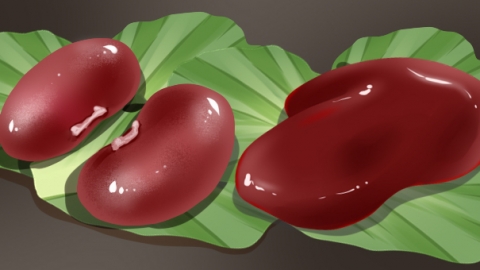What foods should not be eaten with high cholesterol?
Generally, people with high cholesterol should avoid eating animal offal, fatty meats, fried foods, high-cholesterol seafood, butter, and cream products. These foods are high in cholesterol or saturated fat, which can increase the metabolic burden on cholesterol processing in the body and are not conducive to controlling blood lipid levels. Detailed explanations are as follows:

1. Animal Offal: Such as pork liver, pig brain, chicken liver, and pork intestines. These foods contain extremely high levels of cholesterol, far exceeding the recommended daily intake. Consumption can directly elevate blood cholesterol levels, increase vascular metabolic stress, and negatively affect blood lipid stability.
2. Fatty Meats: Such as pork belly, fatty beef, and fatty lamb. Fatty meats are rich in saturated fat, which promotes increased cholesterol synthesis in the liver and may also raise blood viscosity, making cholesterol control more difficult.
3. Fried Foods: Such as fried chicken, youtiao (Chinese fried dough sticks), fried meatballs, and French fries. During the frying process, foods absorb large amounts of oil, often containing saturated or trans fats. Consumption not only raises cholesterol levels but may also increase fat accumulation, adding to the body's metabolic burden, thus requiring complete avoidance.
4. High-Cholesterol Seafood: Such as crab roe, fish roe, shrimp heads, and squid. These types of seafood have high cholesterol content, especially crab roe and fish roe. Even small amounts of consumption may exceed the daily cholesterol intake limit; therefore, individuals with high cholesterol should consume them sparingly or avoid them altogether.
5. Butter and Cream Products: Such as butter, cream, margarine, and cream cakes. These foods are rich in saturated fat, and some also contain trans fats, which elevate blood levels of low-density lipoprotein (LDL) cholesterol and are detrimental to blood lipid regulation.
In daily life, in addition to managing cholesterol through dietary adjustments, individuals can also appropriately increase physical activity, such as brisk walking, jogging, or swimming, to promote fat metabolism and assist in regulating blood lipid levels.










